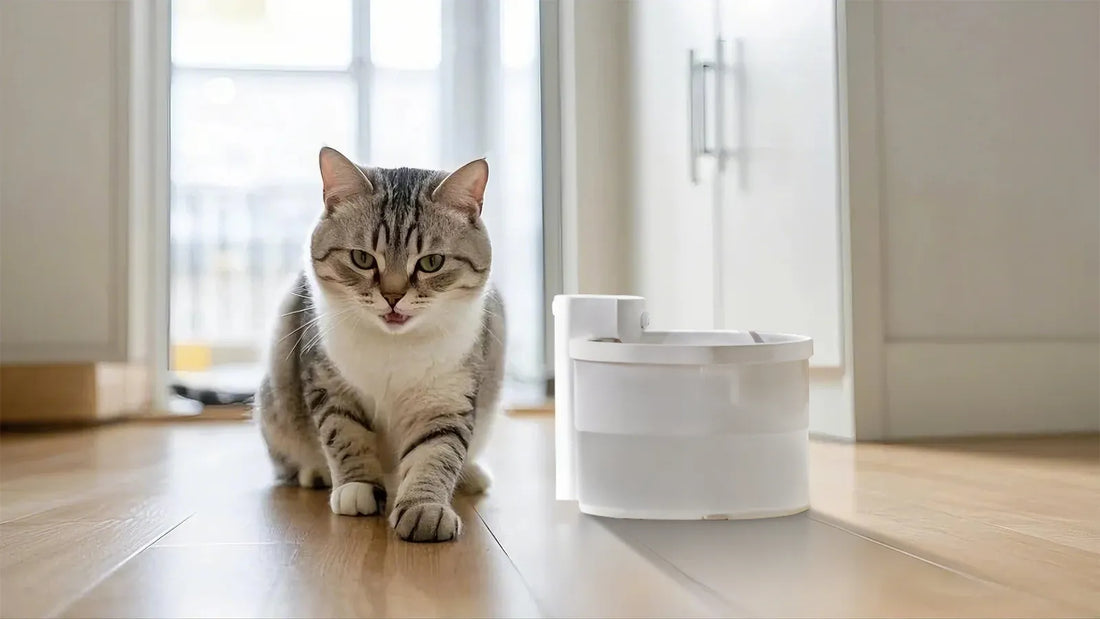When your cat stops eating but continues to drink water, it can be a cause for concern. This behavior often signals an underlying issue that requires attention. Understanding the potential causes and knowing how to respond can help ensure your feline friend stays healthy and happy.
Common Reasons Why a Cat Stops Eating
There are several reasons why a cat might stop eating but still drink water. One of the most common causes is stress or anxiety. Changes in the household, such as moving to a new home or the introduction of a new pet, can lead to a loss of appetite. Additionally, dental problems, such as toothaches or gum disease, can make eating painful for your cat.
Another possible reason is an underlying medical condition. Illnesses such as kidney disease, liver problems, or gastrointestinal issues can affect your cat's appetite. Infections, both bacterial and viral, can also lead to a decrease in food intake. It's essential to monitor your cat's behavior closely and consult a veterinarian if the lack of appetite persists.
Why Is My Cat Still Drinking Water?
While your cat may not be eating, it's a good sign that they are still drinking water. Hydration is crucial for maintaining overall health, especially if your cat is unwell. Drinking water helps to flush out toxins and supports vital bodily functions. However, excessive drinking can also be a sign of certain health issues, such as diabetes or kidney disease.
If your cat is drinking more water than usual, it's important to observe other symptoms they may be exhibiting. Increased thirst, along with changes in urination patterns, can indicate a serious condition that requires veterinary attention.
What Should You Do If Your Cat Isn't Eating?
If your cat isn't eating but is still drinking water, the first step is to assess their environment. Ensure that there are no stressors or changes that could be affecting their appetite. Providing a quiet, comfortable space for your cat to eat can help encourage them to start eating again.
Offering a variety of foods can also stimulate your cat's appetite. Sometimes, cats may become bored with their regular diet and need a change. However, it's important to introduce new foods gradually to avoid digestive upset.
If your cat continues to refuse food for more than 24 hours, it's crucial to seek veterinary advice. Prolonged lack of eating can lead to serious health complications, such as hepatic lipidosis, a condition that affects the liver.
When to Seek Veterinary Help
While occasional changes in appetite are normal, persistent refusal to eat is a cause for concern. If your cat shows other symptoms, such as lethargy, vomiting, diarrhea, or weight loss, it's important to consult a veterinarian immediately. Early diagnosis and treatment can prevent more severe health issues.
Your veterinarian may perform a physical examination, blood tests, or imaging studies to determine the underlying cause of your cat's decreased appetite. Based on the findings, they will recommend an appropriate treatment plan, which may include medications, dietary changes, or other interventions.
Preventing Future Appetite Loss
To prevent future episodes of appetite loss, it's important to maintain a stable and stress-free environment for your cat. Regular veterinary check-ups can help detect and address potential health issues before they become serious. Providing a balanced diet and ensuring your cat has access to fresh water at all times are also essential for their well-being.
Monitoring your cat's behavior and being attentive to any changes can help you catch problems early. By understanding the reasons behind your cat's eating habits, you can take proactive steps to keep them healthy and happy.
If your cat is not eating but still drinking water, it's essential to act promptly. Identifying the cause and seeking appropriate care can make all the difference in your cat's health. Don't wait—your feline friend depends on you to ensure they receive the care they need.













